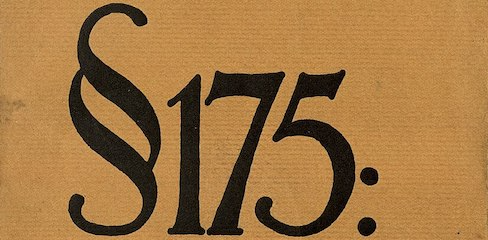
Paragraph 175. A specific section of the German Penal Code, enacted in 1871, which criminalized sexual acts between men. This legal statute became a weapon of systematic persecution under the Nazi regime.

Its text, originally based on Prussian law, read: “Unnatural sexual acts committed between persons of the male sex, or by humans with animals, is punishable by imprisonment; a loss of civil rights may also be sentenced.”
Under the German Empire and the Weimar Republic, prosecutions required proof of actual sexual contact, making convictions difficult and infrequent. However, the existence of PARAGRAPH 175 signaled clear state discrimination and provided a legal tool for social persecution.
During the Nazi regime, PARAGRAPH 175 was radically revised in 1935. The revised statute, which dropped the requirement of “intercourse-like” acts, allowed authorities to prosecute a much wider range of behaviors—including simple affection or looking—between men.
These changes led to a tenfold increase in convictions, rising to an estimated 8,000 annually. Thousands of men were arrested, and many were sent to prisons or concentration camps. The Nazi expansion specifically targeted gay men, not women, as female same-sex relations were not included in the statute.
In the camps, those imprisoned under PARAGRAPH 175 were often marked with a pink triangle—a badge that has since become a symbol of LGBTQ+ persecution and resilience. Historians estimate between 5,000 and 15,000 men died as a result of this systematic campaign of state violence.
Efforts to repeal or reform PARAGRAPH 175 began in the late 19th and early 20th centuries, notably with activism led by Magnus Hirschfeld, but Nazi persecution reversed any progressive momentum.
After World War II, the law remained in force in both East and West Germany, with full abolishment only coming in 1994. In recent years, the German government has publicly recognized and apologized for the harm caused by PARAGRAPH 175 and has pardoned those convicted under its provisions.